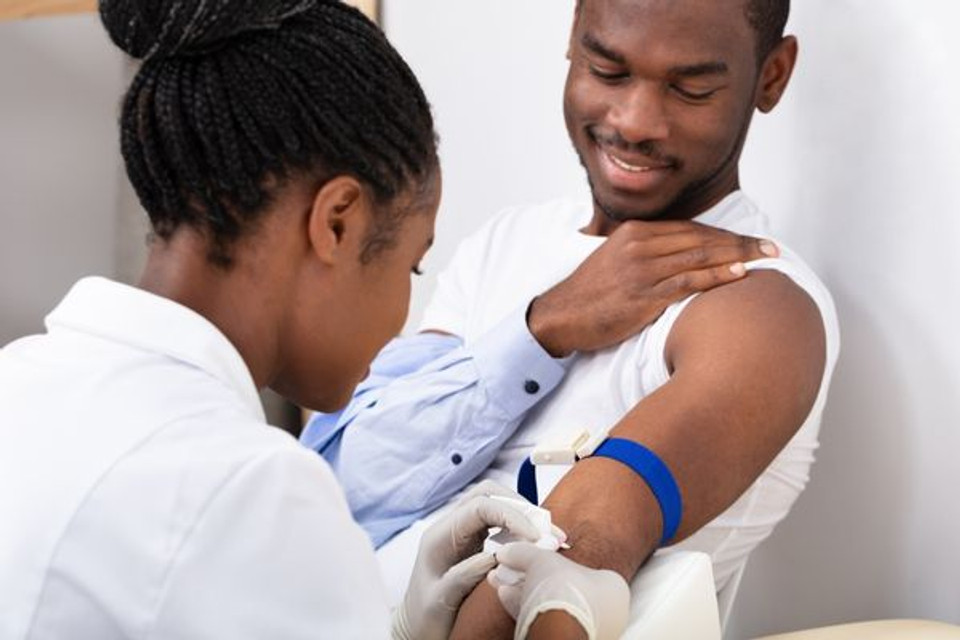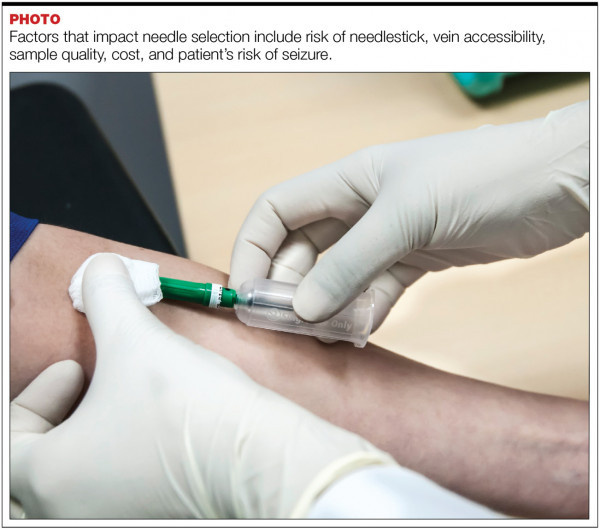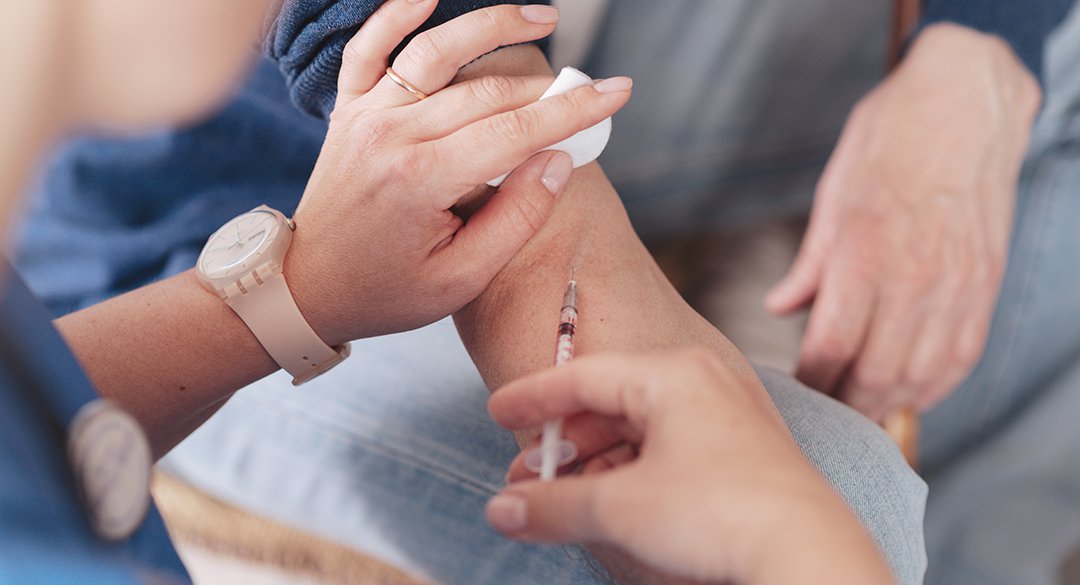When Is It Allowed To Draw Blood Without Gloves
When Is It Allowed To Draw Blood Without Gloves - Gloves help prevent the transmission of pathogens during phlebotomy. Perform hand hygiene and put on gloves Amazon.com has been visited by 1m+ users in the past month Afterwards hand hygiene prevents the healthcare provider from While gloves are generally recommended for drawing blood, there may be specific situations where healthcare professionals may consider not wearing gloves. Web other situations, such as the unavailability of gloves and allergies to latex, also allow blood to be drawn even without gloves. In emergency situations where immediate access to veins is. Web this approach is called universal precautions, and the cdc published this recommendation in its august 1987 guidelines. Web typically, it’s never allowed to draw blood without gloves due to strict infection control guidelines and to ensure the safety of both healthcare professionals and patients. The likelihood of coming into contact with patient blood would be high during venipuncture and gloves offer an enhanced level of protection for individuals performing that task. In emergency situations where immediate access to veins is. Perform hand hygiene and put on gloves Web typically, it’s never allowed to draw blood without gloves due to strict infection control guidelines and to ensure the safety of both healthcare professionals and patients. Today that’s not an option. Web an example would be wearing gloves prior to performing a blood. In emergency situations where immediate access to veins is. Afterwards hand hygiene prevents the healthcare provider from Web an example would be wearing gloves prior to performing a blood draw. It is true that gloves provide only minimal protection from needlesticks, but they provide excellent hand protection from a blood drop on a patient's arm. However, before doing any of. Web an example would be wearing gloves prior to performing a blood draw. Afterwards hand hygiene prevents the healthcare provider from Gloves help prevent the transmission of pathogens during phlebotomy. While gloves are generally recommended for drawing blood, there may be specific situations where healthcare professionals may consider not wearing gloves. Web other situations, such as the unavailability of gloves. Web other situations, such as the unavailability of gloves and allergies to latex, also allow blood to be drawn even without gloves. Gloves help prevent the transmission of pathogens during phlebotomy. Afterwards hand hygiene prevents the healthcare provider from For phlebotomists in the u.s., glove use during vascular access procedures is mandated by osha’s bloodborne pathogens. It is true that. Afterwards hand hygiene prevents the healthcare provider from Web other situations, such as the unavailability of gloves and allergies to latex, also allow blood to be drawn even without gloves. Web typically, it’s never allowed to draw blood without gloves due to strict infection control guidelines and to ensure the safety of both healthcare professionals and patients. For phlebotomists in. Today that’s not an option. Web an example would be wearing gloves prior to performing a blood draw. Web this approach is called universal precautions, and the cdc published this recommendation in its august 1987 guidelines. While gloves are generally recommended for drawing blood, there may be specific situations where healthcare professionals may consider not wearing gloves. Afterwards hand hygiene. While gloves are generally recommended for drawing blood, there may be specific situations where healthcare professionals may consider not wearing gloves. However, before doing any of these, healthcare providers should ensure proper hand hygiene to reduce the risk of contamination and infection. Afterwards hand hygiene prevents the healthcare provider from For phlebotomists in the u.s., glove use during vascular access. Today that’s not an option. However, before doing any of these, healthcare providers should ensure proper hand hygiene to reduce the risk of contamination and infection. In emergency situations where immediate access to veins is. Web this approach is called universal precautions, and the cdc published this recommendation in its august 1987 guidelines. Web an example would be wearing gloves. It is true that gloves provide only minimal protection from needlesticks, but they provide excellent hand protection from a blood drop on a patient's arm. Gloves help prevent the transmission of pathogens during phlebotomy. Amazon.com has been visited by 1m+ users in the past month Web twenty years ago, i worked with people who didn’t wear gloves when drawing blood.. For phlebotomists in the u.s., glove use during vascular access procedures is mandated by osha’s bloodborne pathogens. Web this approach is called universal precautions, and the cdc published this recommendation in its august 1987 guidelines. It is true that gloves provide only minimal protection from needlesticks, but they provide excellent hand protection from a blood drop on a patient's arm.. It is true that gloves provide only minimal protection from needlesticks, but they provide excellent hand protection from a blood drop on a patient's arm. For phlebotomists in the u.s., glove use during vascular access procedures is mandated by osha’s bloodborne pathogens. Amazon.com has been visited by 1m+ users in the past month Today that’s not an option. Web other situations, such as the unavailability of gloves and allergies to latex, also allow blood to be drawn even without gloves. Perform hand hygiene and put on gloves However, before doing any of these, healthcare providers should ensure proper hand hygiene to reduce the risk of contamination and infection. Afterwards hand hygiene prevents the healthcare provider from Web twenty years ago, i worked with people who didn’t wear gloves when drawing blood. In emergency situations where immediate access to veins is. The likelihood of coming into contact with patient blood would be high during venipuncture and gloves offer an enhanced level of protection for individuals performing that task. Web an example would be wearing gloves prior to performing a blood draw. Web situations where drawing blood without gloves may be allowed.
How To Draw Blood A StepbyStep Guide

No Needles, No Clinics Hemolink Draws Blood At Home And Without Pain

6 Tips and Techniques for Drawing Blood From Difficult Veins

How To Draw Blood With Ease From Children

Proper Needle Selection for Blood Collection September 2019

How to Draw Blood from Hard to Hit Veins 15 Steps (with Pictures)

This painfree blood test draws blood without needles

Venipuncture, How to draw blood sample from vein with syringe

How To Properly Draw Blood From A Vein

Getting Your Blood Drawn What You Need to Know One Medical
While Gloves Are Generally Recommended For Drawing Blood, There May Be Specific Situations Where Healthcare Professionals May Consider Not Wearing Gloves.
Gloves Help Prevent The Transmission Of Pathogens During Phlebotomy.
Web This Approach Is Called Universal Precautions, And The Cdc Published This Recommendation In Its August 1987 Guidelines.
Web Typically, It’s Never Allowed To Draw Blood Without Gloves Due To Strict Infection Control Guidelines And To Ensure The Safety Of Both Healthcare Professionals And Patients.
Related Post: